Keywords are essential for anyone running a website, but choosing the right ones isn’t always straightforward. Understanding keywords is one thing, but selecting the right ones to use is a whole different game. It’s more than just choosing words or phrases to use in your content, but figuring out which ones match well with your site’s ability to compete.
Some keywords are highly sought after, dominated by big names you might not be ready to compete with, while others are less known and might not draw enough attention. Getting this balance right involves some know-how and this is where understanding keyword difficulty level can be very important in determining which keywords will be suitable for your website’s online success.
What is Keyword Difficulty?
Keyword difficulty is a metric that helps gauge how hard it would be to rank for a specific keyword in search engine results pages (SERPs). Think of it as a battleground where each keyword represents territory to be won. The difficulty level tells you how strong your forces need to be to stand a chance of victory. In essence, it considers the strength of the current ranking pages, backlink profiles, content quality, and other SEO factors. It’s a crucial piece of intel when planning your SEO strategy.
What are the levels of Keyword Difficulty?
The levels of keyword difficulty can be classified into four main categories: “Easy,” “Moderate,” “Challenging,” and “Highly Competitive.” Each category signifies a different level of competition and effort required to rank for keywords within that range. Understanding these levels helps in strategically selecting keywords aligned with a website’s current SEO strength.
Easy (0-30)
Keywords within this difficulty range are considered to have lower competition, making them suitable for websites that are new or have lower domain authority. They provide a good starting point for initiating an SEO strategy and can yield quicker wins in search rankings.
Moderate (31-60)
Keywords classified under moderate difficulty present a higher level of competition but are still accessible for websites with a solid SEO foundation and a certain level of authority in their respective niches. Achieving rankings for these keywords typically requires a strategic approach to content and SEO practices.
Challenging (61-80)
Keywords in the challenging category are marked by high competition. Success in ranking for these terms demands comprehensive SEO efforts, including the creation of superior content and the development of a robust backlink profile. Websites aiming for these keywords should be prepared for a more intensive SEO campaign.
Highly Competitive (81-100)
The most competitive keywords fall into this category, often contested by the most authoritative sites within any given industry. Ranking for these keywords necessitates not only advanced SEO skills but also considerable investments in both time and resources toward content creation and link-building strategies. Success in this range is challenging and requires a long-term commitment to SEO excellence.
What To Keep in Mind when Choosing a Keyword that is levelled with Your Authority
When selecting keywords, it’s essential to balance ambition with realism. Targeting keywords that match your website’s authority can maximise your chances of SEO success. If you’re a small to medium-sized site, aim for those easy to moderate difficulty keywords. These targets are more achievable and can provide valuable traffic without the need for a titanic struggle against established giants.
How is it Calculated?
Keyword difficulty is assessed through a meticulous analysis incorporating several critical factors that directly impact a keyword’s competitiveness on search engine results pages (SERPs). The process evaluates the quantity and quality of backlinks directed towards pages that currently rank for a given keyword, as these backlinks are indicative of the page’s authority and credibility in the eyes of search engines.
Additionally, the domain authority of these websites is considered, reflecting their overall strength and influence on the web. Content quality and relevance play a significant role in this evaluation, ensuring that the material is both informative and closely aligned with the keyword’s intent.
How Does it Matter in Pay-Per-Click Ads and SEO?
Keyword difficulty plays a crucial role in both Pay-Per-Click (PPC) advertising and Search Engine Optimization (SEO) strategies.
SEO
In SEO, keyword difficulty influences your content and link-building strategy. A lower difficulty score means easier ranking potential, ideal for newer sites. It helps prioritise efforts on keywords where you have a realistic chance of breaking into the top search results.
PPC Ads / Google Ads
For Google Ads campaigns, keyword difficulty provides insights into the competition level and potential cost of bids for keywords. Highly competitive keywords often come with higher costs per click (CPC), making it essential to weigh the potential return on investment before diving in.
Final Thoughts from Digital Marketing Experts
Digital marketing experts stress the importance of a balanced approach to keyword difficulty. While aiming for those highly competitive keywords might seem tempting, it’s often the strategic targeting of less competitive terms that yields the most fruitful results. Understanding and utilising keyword difficulty effectively can transform an underperforming website into a formidable online presence. It’s about choosing battles you can win and knowing that with the right strategy, even smaller players can carve out their space in the digital landscape.















